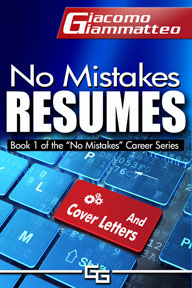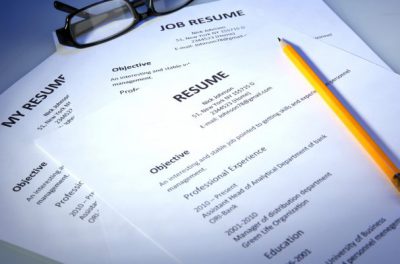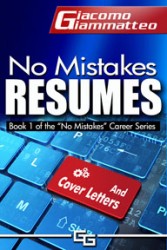Objectives
I have been looking at resumes for 33 years. In all of that time, out of the tens of thousands of resumes I screened, I can’t recall a single one where the objective was so compelling that it made me stop and want to pick up the phone to call that person. There were many, however, that elicited the opposite response. Some people cautiously advise against putting objectives on resumes. I go a little beyond that. I despise objectives. I would even go so far as to say I loathe them. In my opinion, putting an objective on the resume is one of the biggest mistakes you can make.
I did a quick search of my resume database and was not surprised to find that almost 30% of the people had objectives on their resumes.
Below are some (real) samples:
CAREER OBJECTIVE:
- Position that will utilize my background and experience, expand my knowledge and offer opportunities for professional growth.
Take a close look at this. Did this person really think that objective would inspire a headhunter or gatekeeper to fumble for the phone and invite him in for an interview?
Here’s another one:
- Objective: A senior management position requiring innovative and creative approaches to the development and implementation of a solid business strategy based on a basic understanding of technology with a focus on the achievement of business and financial goals.
I read that three times. What the hell did he just say? I don’t know exactly what he meant by all that, but if I were the gatekeeper, I wouldn’t take the time to find out. You know where this is going, don’t you? In the trash.
What were these people thinking? Did they really believe they would impress the gatekeeper with those lines as objectives?
The Inside Scoop
For the sake of argument, and because I’m the one writing this article, let’s assume that we’ll rule out objectives as an integral part of the resume. We’ll agree not to put objectives on resumes because they can’t help you, and they might hurt. No matter what your objective says, unless it meets the vision this particular company has for the position, you have potentially screened yourself out.
A good objective—even a perfect objective—won’t compensate for:
- lack of experience.
- weak accomplishments.
- unstable work history.
- inappropriate education.
A good objective may get you a nod of the gatekeeper’s head, and keep her reading for a few more lines. But she’ll do that without an objective too.
The Coffee Argument
Suppose Starbucks put a teaspoon of sugar into every cup of coffee. What do you think would happen?
- People who like less than a teaspoon of sugar would be unhappy.
- People who like more than a teaspoon would be unhappy.
- People who don’t like sugar at all would be very unhappy.
In fact, the only people who would be happy are the ones who like exactly one teaspoon of sugar.
Putting an objective on a resume is just like that.
I have never seen or heard of the lack of an objective as being the reason for screening someone out. Because this point is so important, I’ll repeat it:
- I have never seen or heard of the lack of an objective being the reason for screening someone out.
Unless you can write an objective that is so strong or so compelling, that it will make a gatekeeper want to bring you in for an interview without reading further, I suggest you leave it off your resume.
The Bottom Line
Leaving an objective off your resume will offend no one. No one will second guess you. No one will toss your resume into the trash can.
If you enjoyed this post, please share.
If you are looking for help on your resume, or with interviewing tips, check out our resume-writing services and/or the career books.






















Twitter: JessicaWisdom1
says:
I don’t mind objectives (for the most part). However if you have one on your resume, the burden falls on the applicant to tailor it to EACH role, otherwise it will be superfluous.
Twitter: JimGiammatteo
says:
Hi, Jessica. Thanks for stopping by. I still don’t like objectives, but I agree that if someone absolutely wants to include one, at least tailor it to the job.